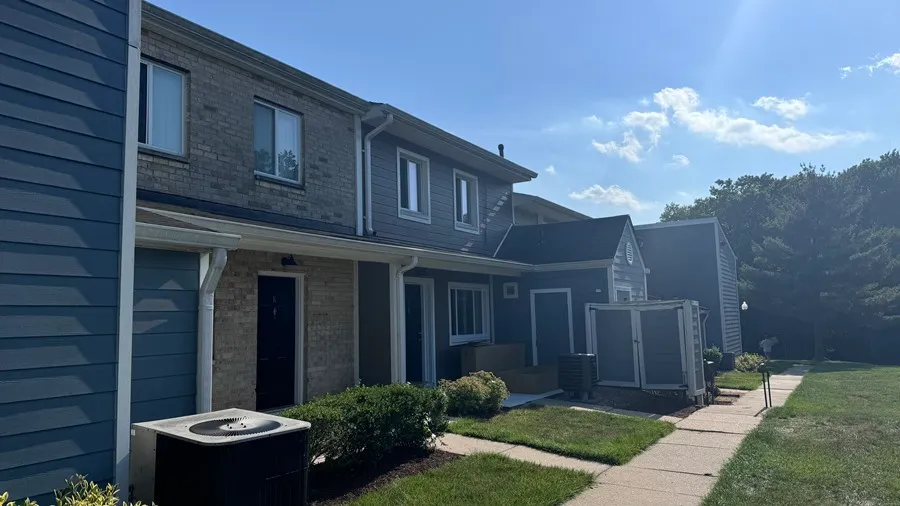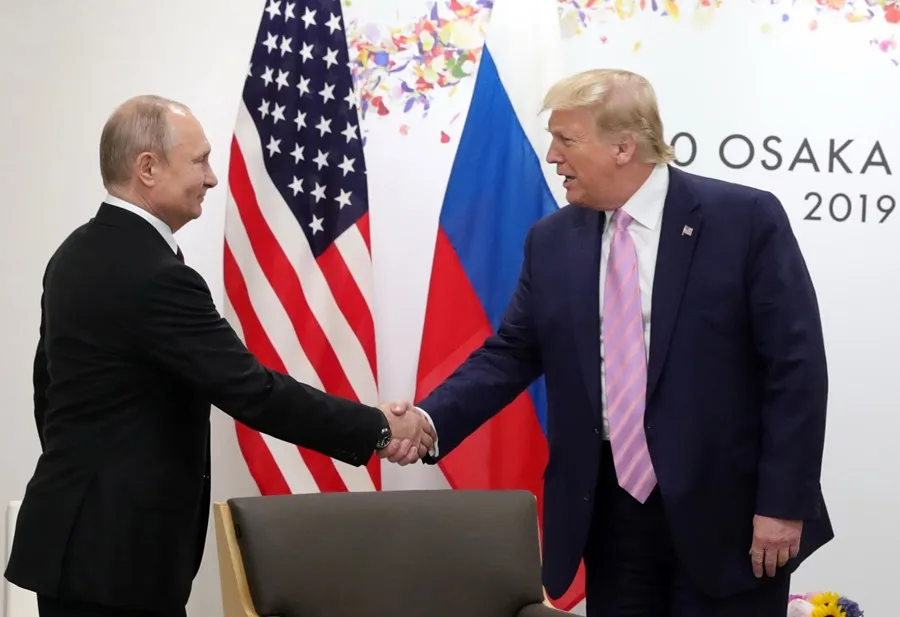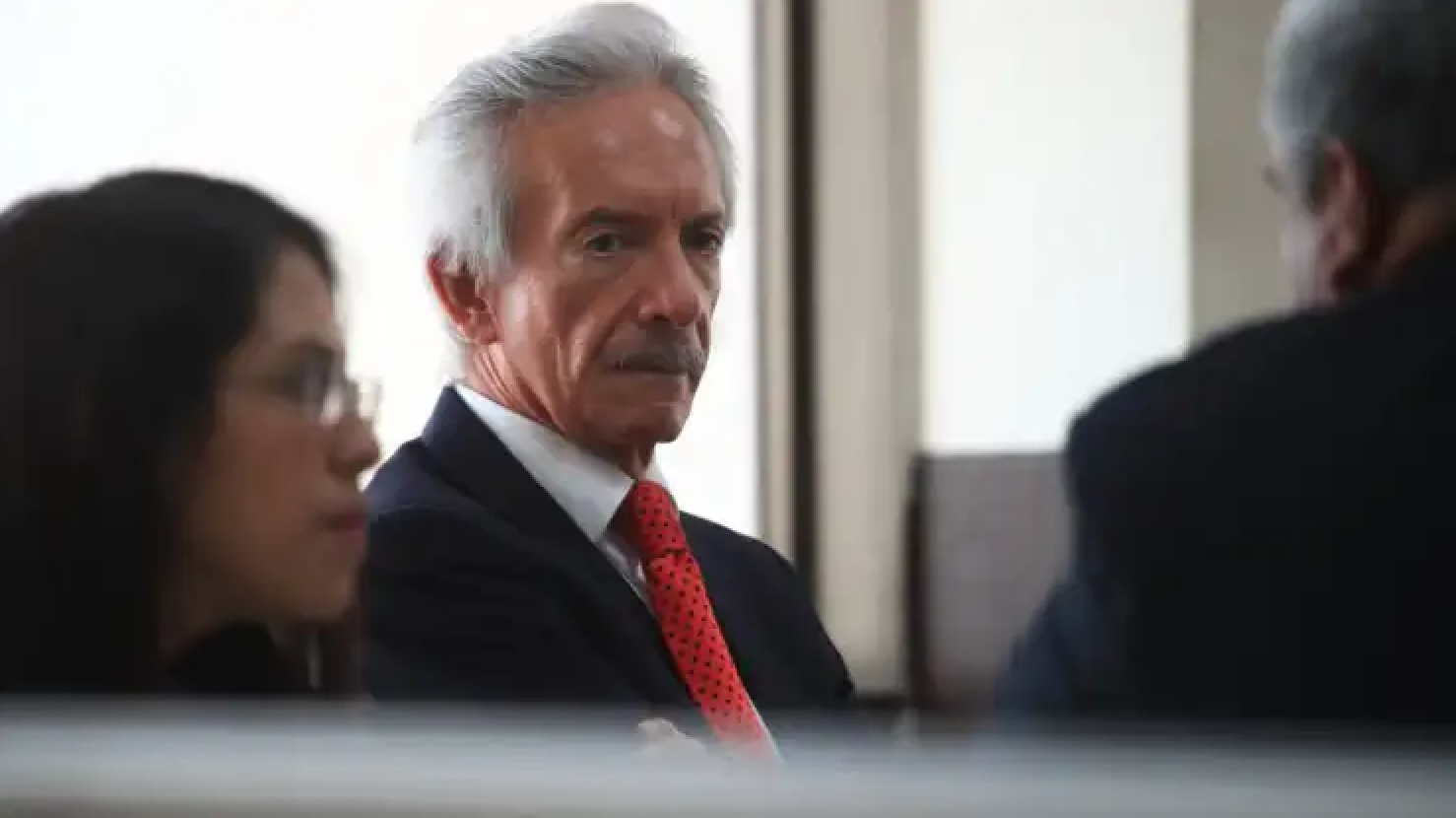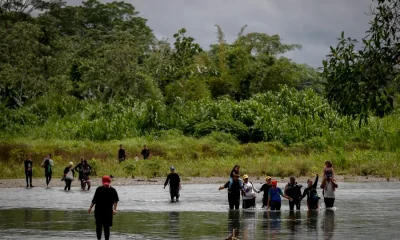International
‘Green cards’ for undocumented spouses of Americans: “A hope for many”

María Villanueva and Gustavo Villeda met in 2019 in a church in Silver Spring, a suburb north of the capital of the United States, and although they fell in love and started dating, she was reluctant to marry him because she did not want to “suffer” for a reality that was already familiar to her.
Villeda, born in Guatemala, emigrated to the United States in 2004 irregularly and it is this status – which he has not been able to adjust – that made Villanueva, a Mexican with American nationality, doubt about whether or not to go through the altar.
Today, not only do they live together and got married last summer, but they have a two-month-old child in common.
“I said that I was never going to marry someone who didn’t have papers, out of fear and the anguish that they might separate us,” the 32-year-old explains laughing in an interview with EFE from the dining room of her house in the small town of Laurel (Maryland).
She left Mexico at just 7 years old to reunite with her father – who already lived in the United States – while her husband emigrated as an adult with the expectations that the ‘American dream’ would allow her to send money to a sick daughter she left in Guatemala and who is about to turn 20.
“I haven’t seen her grow up and I don’t want this to happen to me again with him,” he says, looking at his son Alfonso Jesús, who sleeps next to him in the mother’s arms. Both are sitting on the sofa in the living room, presided over by a set of photographs of their wedding hanging on the wall and visible as soon as they enter the small house.
The couple agrees that, once married, the great impediment to trying to fix Gustavo’s papers has been the economic factor. “I suffer from severe migraine, we have needed the money for doctors and we have not been able to allocate it to the (regularization) application,” says María.
But now the situation of uncertainty of this family can change because Villeda is one of the more than half a million migrants eligible to take advantage of the new program, announced last Tuesday by the Government of President Joe Biden, and thus regularize their status in the country.
The measures mainly benefit people married to U.S. citizens – a condition that he fulfills – who will be able to take the first step in the process to obtain a residence permit in the United States.
Gustavo, still assimilating the new opportunity that has been presented to him, assures that the news has reached him “by surprise” and, although he does not know in detail how the process continues, he is optimistic to have “a hope for many” in front of him.
Supported by a legal figure known as ‘parole’, this permit grants those who are already in US territory protection against deportation and allows them to apply for a work permit.
With the labor authorization, which will be valid for three years, migrants who entered the country irregularly and are married to U.S. citizens can apply for residence and, subsequently, citizenship.
To benefit from this formula, the person must have married a U.S. citizen before June 17, 2024 and have lived in the country for at least 10 years.
At the same time, months after this announcement enters into force, the couple does not overlook the fact that next November there will be presidential elections in the country that can change everything.
“We are concerned that all this may come to nothing, that it may be spoiled by a change of government or by disputes between them,” says María, questioning the presumptuous presidential candidates – Joe Biden and Donald Trump-, although she is convinced to “take the risks” and to take advantage of these months before the elections.
“We hope that you respect the families who, like us, are going through this situation and who have been fighting for a reform,” adds the woman, who is a collaborator of CASA, an NGO for defense and assistance to immigration.
Even with all the difficulties in mind, the two agree that there is hope and they are willing to keep looking for it.
International
Trump urges Putin to reach peace deal

On Monday, U.S. President Donald Trump reiterated his desire for Russian President Vladimir Putin to “reach a deal” to end the war in Ukraine, while also reaffirming his willingness to impose sanctions on Russia.
“I want to see him reach an agreement to prevent Russian, Ukrainian, and other people from dying,” Trump stated during a press conference in the Oval Office at the White House.
“I think he will. I don’t want to have to impose secondary tariffs on Russian oil,” the Republican leader added, recalling that he had already taken similar measures against Venezuela by sanctioning buyers of the South American country’s crude oil.
Trump also reiterated his frustration over Ukraine’s resistance to an agreement that would allow the United States to exploit natural resources in the country—a condition he set in negotiations to end the war.
International
Deportation flight lands in Venezuela; government denies criminal gang links

A flight carrying 175 Venezuelan migrants deported from the United States arrived in Caracas on Sunday. This marks the third group to return since repatriation flights resumed a week ago, and among them is an alleged member of a criminal organization, according to Venezuelan authorities.
Unlike previous flights operated by the Venezuelan state airline Conviasa, this time, an aircraft from the U.S. airline Eastern landed at Maiquetía Airport, on the outskirts of Caracas, shortly after 2:00 p.m. with the deportees.
Interior Minister Diosdado Cabello, who welcomed the returnees at the airport, stated that the 175 repatriated individuals were coming back “after being subjected, like all Venezuelans, to persecution” and dismissed claims that they belonged to the criminal organization El Tren de Aragua.
However, Cabello confirmed that “for the first time in these flights we have been carrying out, someone of significance wanted by Venezuelan justice has arrived, and he is not from El Tren de Aragua.” Instead, he belongs to a gang operating in the state of Trujillo. The minister did not disclose the individual’s identity or provide details on where he would be taken.
International
Son of journalist José Rubén Zamora condemns father’s return to prison as “illegal”

The son of renowned journalist José Rubén Zamora Marroquín, José Carlos Zamora, has denounced as “illegal” the court order that sent his father back to a Guatemalan prison on March 3, after already spending 819 days behind barsover a highly irregular money laundering case.
“My father’s return to prison was based on an arbitrary and illegal ruling. It is also alarming that the judge who had granted him house arrest received threats,” José Carlos Zamora told EFE in an interview on Saturday.
The 67-year-old journalist was sent back to prison inside the Mariscal Zavala military barracks on March 3, when Judge Erick García upheld a Court of Appeals ruling that overturned the house arrest granted to him in October. Zamora had already spent 819 days in prison over an alleged money laundering case.
His son condemned the situation as “unacceptable”, stating that the judge handling the case “cannot do his job in accordance with the law due to threats against his life.”
-

 Central America5 days ago
Central America5 days agoNicaragua denounces Costa Rica’s position in SICA as aligned with foreign interests
-

 Central America5 days ago
Central America5 days agoNicaragua’s new judicial law consolidates power in Ortega and Murillo’s hands
-

 Central America5 days ago
Central America5 days agoPanama’s president declares Darién gap ‘closed’ amid sharp drop in migrant flow
-

 International3 days ago
International3 days agoSon of journalist José Rubén Zamora condemns father’s return to prison as “illegal”
-

 International5 days ago
International5 days agoMarco Rubio warns Venezuela against military action against Guyana
-

 International3 days ago
International3 days agoMiyazaki’s style goes viral with AI but at what cost?
-

 Central America2 days ago
Central America2 days agoPanama police clarifies that Interpol alert for Martinelli is still pending
-

 International2 days ago
International2 days agoDeportation flight lands in Venezuela; government denies criminal gang links
-

 Central America16 hours ago
Central America16 hours agoU.S. Homeland Security Secretary urges Mexico to strengthen Guatemala border
-

 International16 hours ago
International16 hours agoTrump urges Putin to reach peace deal
-

 Central America16 hours ago
Central America16 hours agoPanama grants Martinelli 72-hour extension to travel to Nicaragua
-
Central America4 days ago
Nicaragua revokes legal status of 10 more NGOs, bringing total to over 5,600















